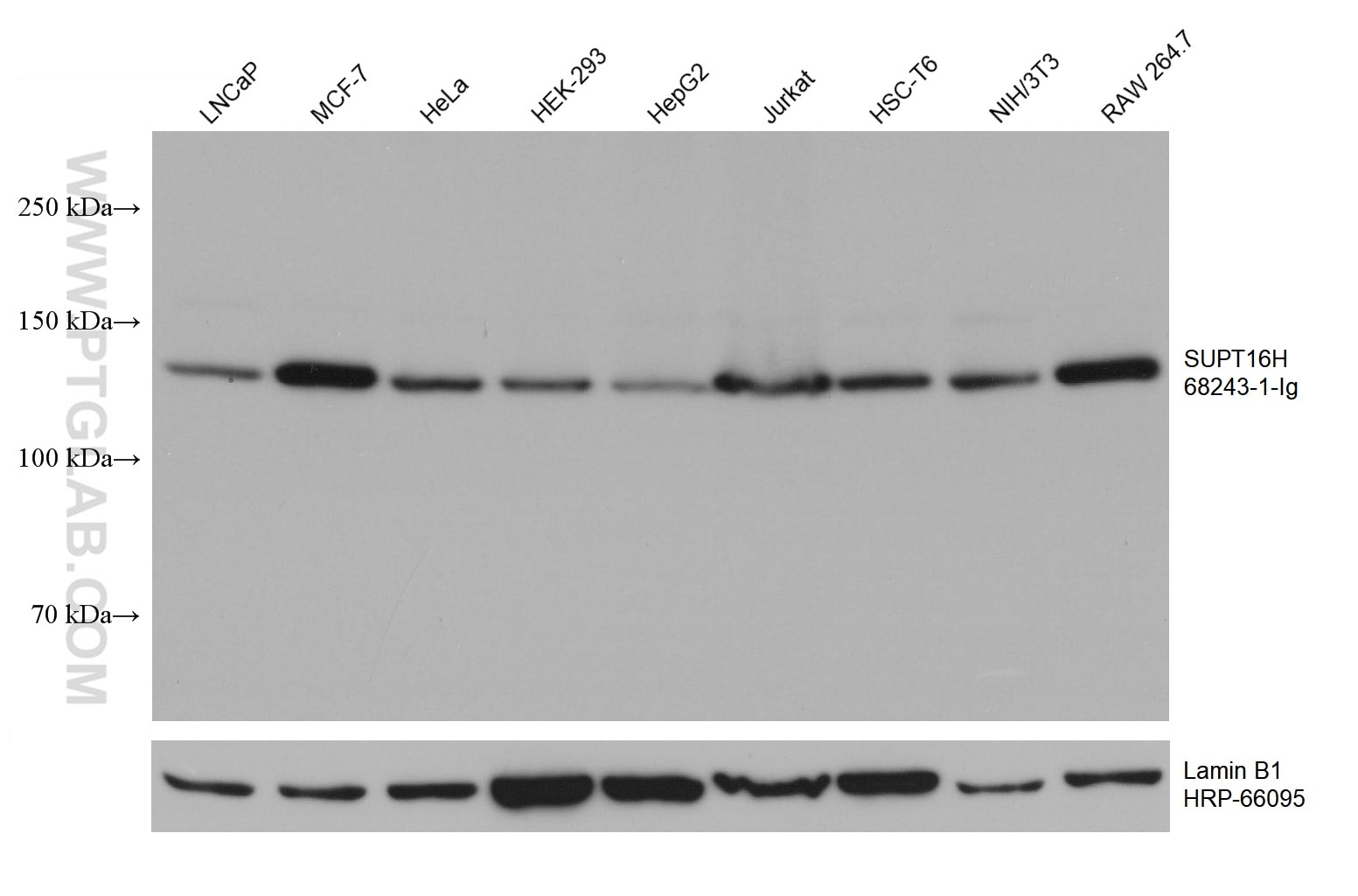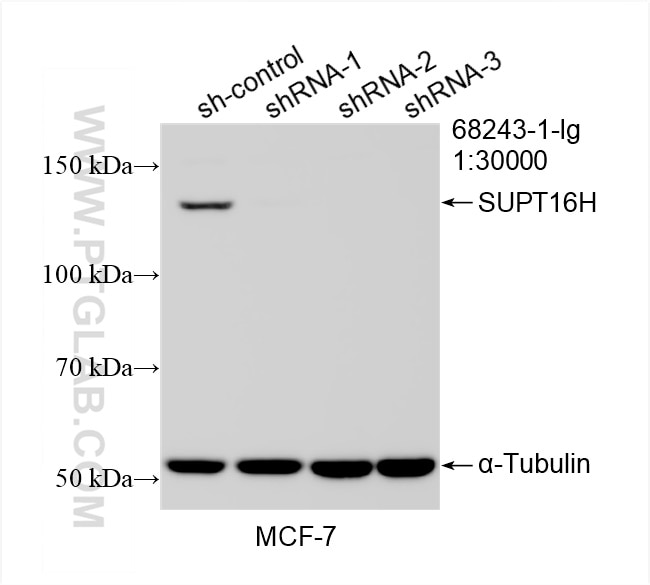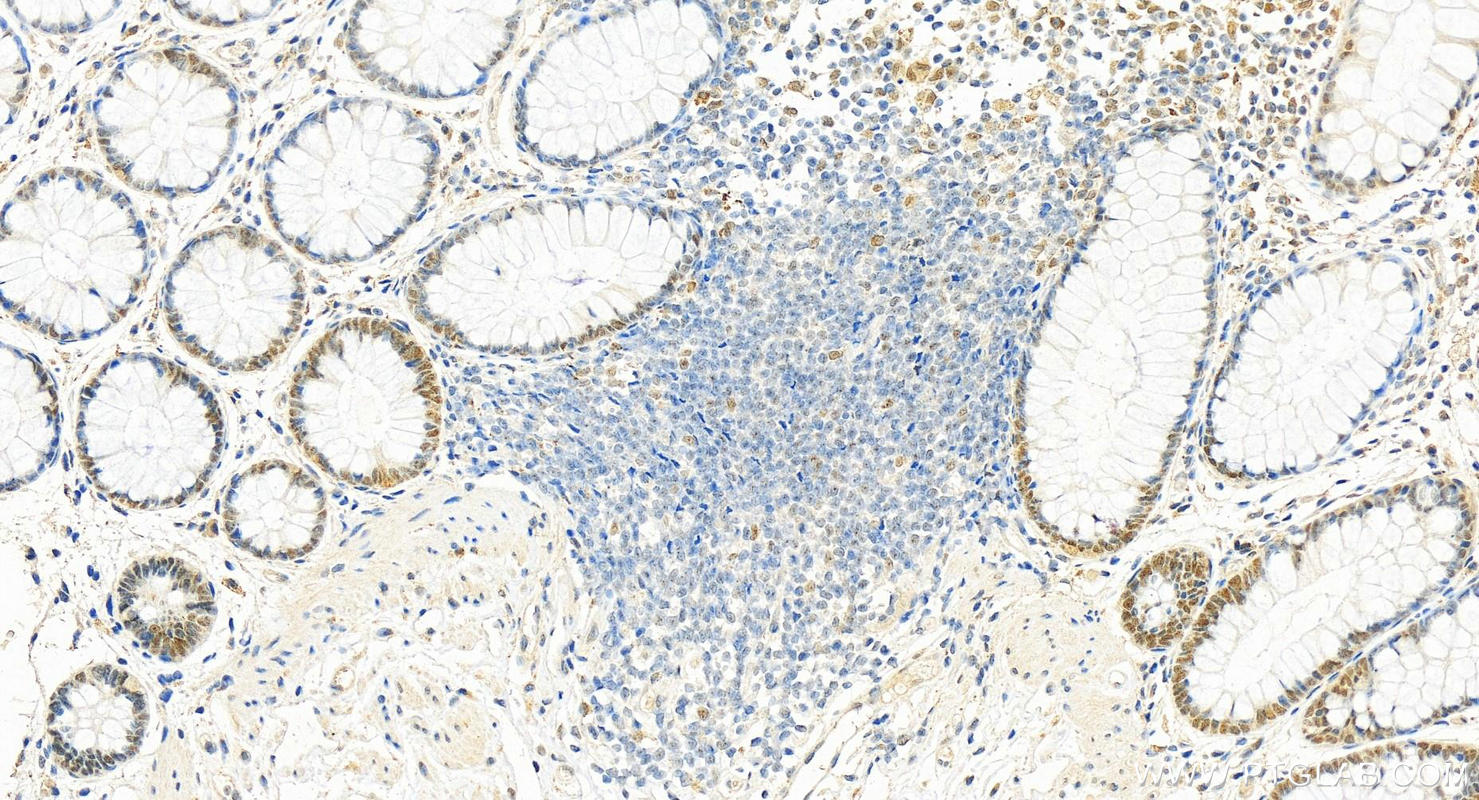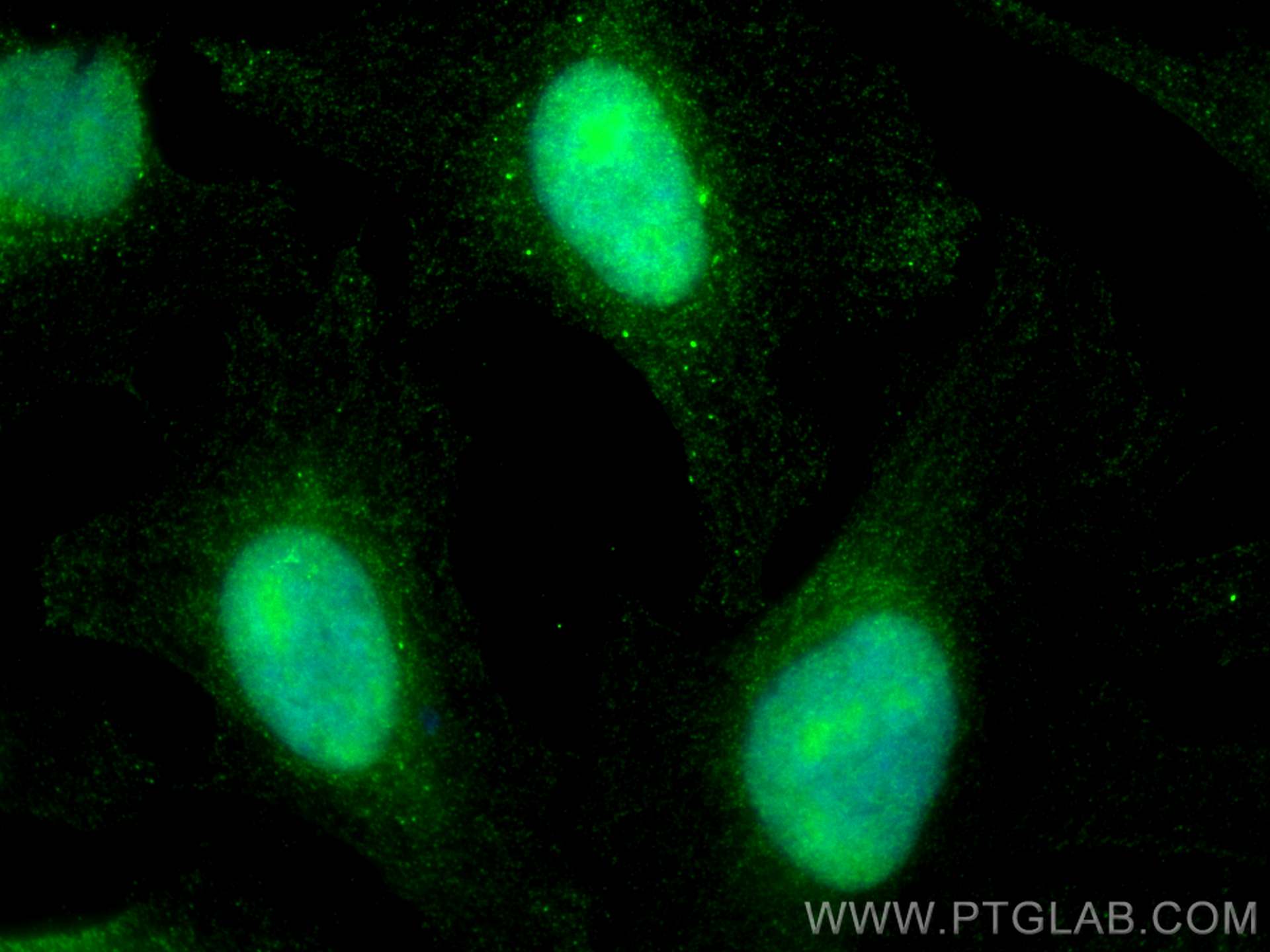- Phare
- Validé par KD/KO
Anticorps Monoclonal anti-SUPT16H
SUPT16H Monoclonal Antibody for WB, IHC, IF/ICC, ELISA
Hôte / Isotype
Mouse / IgG1
Réactivité testée
Humain, rat, souris
Applications
WB, IHC, IF/ICC, ELISA
Conjugaison
Non conjugué
CloneNo.
1E4C4
N° de cat : 68243-1-Ig
Synonymes
Galerie de données de validation
Applications testées
| Résultats positifs en WB | cellules LNCaP, cellules HEK-293, cellules HeLa, cellules HepG2, cellules HSC-T6, cellules Jurkat, cellules MCF-7, cellules NIH/3T3 |
| Résultats positifs en IHC | tissu de côlon humain, il est suggéré de démasquer l'antigène avec un tampon de TE buffer pH 9.0; (*) À défaut, 'le démasquage de l'antigène peut être 'effectué avec un tampon citrate pH 6,0. |
| Résultats positifs en IF/ICC | cellules HeLa, |
Dilution recommandée
| Application | Dilution |
|---|---|
| Western Blot (WB) | WB : 1:5000-1:50000 |
| Immunohistochimie (IHC) | IHC : 1:500-1:2000 |
| Immunofluorescence (IF)/ICC | IF/ICC : 1:500-1:2000 |
| It is recommended that this reagent should be titrated in each testing system to obtain optimal results. | |
| Sample-dependent, check data in validation data gallery | |
Informations sur le produit
68243-1-Ig cible SUPT16H dans les applications de WB, IHC, IF/ICC, ELISA et montre une réactivité avec des échantillons Humain, rat, souris
| Réactivité | Humain, rat, souris |
| Hôte / Isotype | Mouse / IgG1 |
| Clonalité | Monoclonal |
| Type | Anticorps |
| Immunogène | SUPT16H Protéine recombinante Ag29459 |
| Nom complet | suppressor of Ty 16 homolog (S. cerevisiae) |
| Masse moléculaire calculée | 120 kDa |
| Poids moléculaire observé | 135 kDa |
| Numéro d’acquisition GenBank | NM_007192 |
| Symbole du gène | SUPT16H |
| Identification du gène (NCBI) | 11198 |
| Conjugaison | Non conjugué |
| Forme | Liquide |
| Méthode de purification | Purification par protéine G |
| Tampon de stockage | PBS with 0.02% sodium azide and 50% glycerol |
| Conditions de stockage | Stocker à -20°C. Stable pendant un an après l'expédition. L'aliquotage n'est pas nécessaire pour le stockage à -20oC Les 20ul contiennent 0,1% de BSA. |
Informations générales
SUPT16H, also named as FACT140, FACTP140, SPT16 and CDC68, belongs to the peptidase M24 family and SPT16 subfamily. SUPT16H is a component of the FACT complex, a general chromatin factor that acts to reorganize nucleosomes. The FACT complex is involved in multiple processes that require DNA as a template such as mRNA elongation, DNA replication and DNA repair. During transcription elongation the FACT complex acts as a histone chaperone that both destabilizes and restores nucleosomal structure. It facilitates the passage of RNA polymerase II and transcription by promoting the dissociation of one histone H2A-H2B dimer from the nucleosome, then subsequently promotes the reestablishment of the nucleosome following the passage of RNA polymerase II. The FACT complex is probably also involved in phosphorylation of 'Ser-392' of p53/TP53 via its association with CK2 (casein kinase II). It also involved in vitamin D-coupled transcription regulation via its association with the WINAC complex, a chromatin-remodeling complex recruited by vitamin D receptor (VDR), which is required for the ligand-bound VDR-mediated transrepression of the CYP27B1 gene.
Protocole
| Product Specific Protocols | |
|---|---|
| WB protocol for SUPT16H antibody 68243-1-Ig | Download protocol |
| IHC protocol for SUPT16H antibody 68243-1-Ig | Download protocol |
| IF protocol for SUPT16H antibody 68243-1-Ig | Download protocol |
| Standard Protocols | |
|---|---|
| Click here to view our Standard Protocols |





